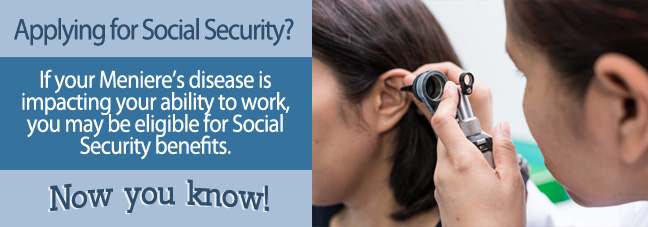The Social Security Disability Insurance (SSDI) program was developed to offer financial protection to workers who become injured or disabled due to a severe health condition. Individuals who are unable to work for at least one year can apply for disability benefits from the Social Security Administration (SSA).
Not everyone who applies for SSDI benefits will be approved. In fact, the vast majority of people who seek disability assistance are initially denied. The easiest way to win approval for disability benefits is to meet the criteria listed in the Blue Book. The Blue Book, often referred to as the Listing of Impairments, is an online manual developed by the SSA to help standardize the way in which disability designations are doled out. Individuals who have been diagnosed with Meniere’s disease might benefit from a better understanding of the Blue Book.
How the Blue Book Can Help You Medically Qualify for Disability with Meniere’s Disease
Those suffering from Meniere’s disease understand just how challenging the illness can be. The unpredictable nature of the disease combined with the debilitating, often sudden, attacks can render one completely disabled. An inner ear condition, Meniere’s can cause vertigo, ringing in the ears, hearing loss, nausea, and vomiting. As the attacks can come on suddenly, causing dizziness and balance problems, it can be particularly difficult to maintain work.
Meniere’s disease can be found in the special senses and speech section of the Blue Book. Section 2.07 addresses disturbances of the labyrinthine-vestibular function system, including Meniere’s disease.
To be approved for disability benefits for Meniere’s disease, an individual must have a history of frequent attacks of balance disturbance, tinnitus, and progressive loss of hearing. The disturbed function of the vestibular system must be confirmed by caloric or other vestibular tests, and the hearing loss must be established by audiometry.
According to the Blue Book, the disturbances caused by Meniere’s disease may be constant or may occur in paroxysmal attacks. Because remissions of Meniere’s disease may be long-lasting, disability benefits are only approved after prolonged observation and several reexaminations.

What Evidence Do I Need to Win My Meniere’s Disease Claim?
The Blue Book also comes in handy when an individual wants to determine what kind of medical evidence is required by the SSA to win their claim. A disability claim for Meniere’s disease will require the following:
- A comprehensive neuro-otolaryngologic exam with a detailed description of the vertigo episodes, including the frequency, severity, and duration of the attacks.
- Both otologic examination and audiometric testing should be completed within two months of one another. The otologic examination must be performed by a licensed physician or audiologist and the audiometric testing by a licensed audiologist or otolaryngologist. Pure tone and speech audiometry with the appropriate tests, such as Beksey audiometry, is needed.
- Positional and caloric testing, preferably by electronystagmography.
- When polytomograms, contrast radiography, or other special tests have been performed, copies of the reports of these tests should be obtained.
- Medically acceptable imaging of the skull and temporal bone, which could include x-rays, CT scans, or MRIs.
- Any treatments received and response to those treatments should also be carefully documented.
- As noted earlier, a longitudinal record of Meniere’s disease is essential for winning a claim.
Can A Lawyer Help Me Win My Claim for Meniere’s Disease?
Individuals with more severe cases of Meniere’s disease can qualify for disability benefits. However, due to the nature of the condition, it can be difficult to prove the disabling effects to the SSA.
Not only does an experienced disability lawyer understand what medical evidence is required to win a case for Meniere’s disease, but he or she can also help you obtain the documentation needed to support your claim. Should your disability application be initially denied, as is often the case for those with Meniere’s disease, a Social Security lawyer can help you navigate the complicated appeals process.